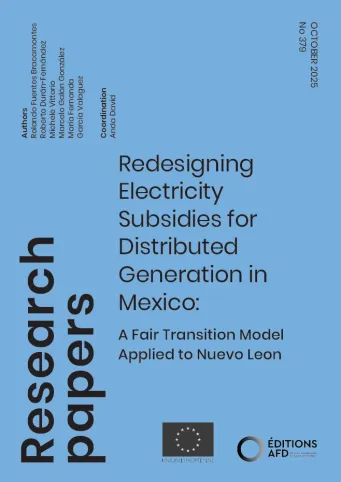Share the page
Redesigning Electricity Subsidies for Distributed Generation in Mexico: A Fair Transition Model Applied to Nuevo Leon
Published on

Mexico is faced with a dual energy challenge: to move forward in a transition towards clean sources while meeting the immediate nearshoring demands, calling for a reliable electricity infrastructure. The study presented herein offers a fiscally neutral redesign of the residential electricity subsidy, replacing regressive monetary transfers with in-kind subsidies through the installation of solar panels on residential rooftops. Implementing this proposal to the state of Nuevo Leon, a technical, fiscal and distributive analysis that estimates the potential for distributed generation is developed, based on the redirection of already existing subsidies. Through geospatial tools and economic modeling, the region is expected to install more than 74,000 residential photovoltaic systems annually, generating between 196 and 262 GWh of electricity per year, which would free up grid capacity for new industrial projects. The study makes an assessment on the different financing schemes, reflecting that it is possible to maintain fiscal neutrality and improve distributive equity via progressive mechanisms. Likewise, it also discusses the operational limits and institutional conditions required to scale up this policy. As a proof of concept, this work shows the technical and economic feasibility of a modular distributed generation policy aimed at reducing structural inequalities, accelerating the energy transition and strengthening industrial competitiveness in strategic regions.
Useful Information
-
Authors
-
Rolando Fuentes Bracamontes, Roberto Durán-Fernández, Michele Vittorio, Marcelo Galán, González, María Fernanda García Valaguez
-
Coordinators
-
Edition
-
379
-
Number of pages
-
44
-
ISSN
-
2492 - 2846
-
Collection
-
Research Papers
-
Languages
-
English
